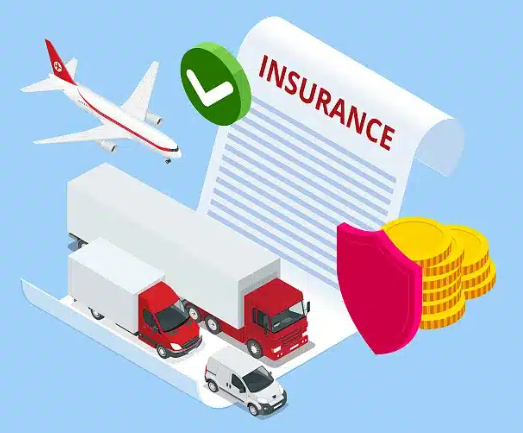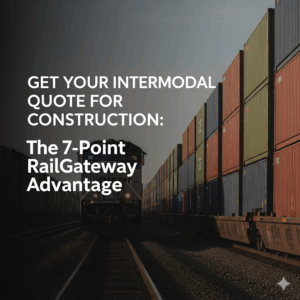Discover the Critical Difference Between Freight Insurance and Carrier Liability
When it comes to protecting your valuable cargo during transit, understanding the difference between freight insurance and carrier liability is absolutely critical. Many shippers assume that carrier liability alone provides sufficient coverage for their shipments, but this misconception can cost businesses thousands of dollars in losses and unexpected expenses. In 2025, as shipping networks become more complex and risks multiply, navigating the nuances of freight insurance versus carrier liability is more important than ever.
This opening guide will dive deep into the shocking truth behind these two protection mechanisms, reveal common pitfalls, and explain why investing in comprehensive freight insurance could save your business significant money, hassle, and stress.
Understanding Carrier Liability: What It Really Covers and Its Limits
Carrier liability is the legal obligation that freight carriers have to compensate shippers for loss or damage to goods during transportation. While it sounds reassuring, in reality, carrier liability is often minimal and limited by strict regulations and contractual terms.
In most cases, the liability amount is capped and based on weight or declared value formulas that do not reflect the actual commercial worth of the goods. For example, under many standard bills of lading and legal frameworks like the Carmack Amendment (in the U.S.), carriers’ liability might be limited to as little as $0.50 per pound or a similarly low rate.
This limited liability means that if your shipment of electronics, machinery, or perishable goods worth thousands of dollars suffers loss or damage, the carrier’s reimbursement will likely cover only a fraction of your true financial exposure. Many carriers also disclaim liability for certain types of damage or delays in their contracts.
Furthermore, carrier liability typically does not cover consequential losses such as lost sales, production downtime, or expedited replacement shipping costs. These gaps leave shippers vulnerable to significant unanticipated expenses.
The Role of Freight Insurance: Comprehensive Protection Tailored to Your Needs
Unlike carrier liability, freight insurance offers tailored, comprehensive coverage designed to protect your shipments fully. Freight insurance policies can be customized to cover the full commercial value of your cargo, including high-value, fragile, or perishable items.
Freight insurance not only covers physical loss or damage but can also extend to incidental costs such as customs duties, storage fees, and freight forwarding charges. Some policies also provide delay or business interruption coverage, which is increasingly vital in today’s supply chain environment.
By securing freight insurance, shippers transfer the financial risk of cargo loss or damage to the insurer, gaining peace of mind and protecting their bottom line. This comprehensive risk transfer is crucial in 2025, when freight theft, supply chain disruptions, and natural disasters have become more frequent and severe.
Why Carrier Liability Alone Is a Risky Bet in 2025
Relying solely on carrier liability to protect your freight is a risky business strategy. The limitations of carrier liability expose shippers to:
- Financial Shortfalls: Carrier liability caps often fall far short of the actual value of lost or damaged goods. This leaves a significant coverage gap.
- Limited Claim Scope: Many carriers exclude coverage for certain damage types, delays, or theft.
- Slow and Complex Claims Process: Pursuing carrier liability claims can be slow and complicated, further delaying reimbursement.
- No Protection Against Consequential Losses: Lost sales, expedited shipping, and downtime costs remain uncovered.
These risk factors can translate to thousands of dollars in unexpected losses, severely impacting cash flow and profitability.
Real-World Examples: How Freight Insurance Saves Shippers Thousands
Consider a Canadian retailer shipping $50,000 worth of electronics by truck and rail. If a shipment is damaged in transit, the carrier’s liability might reimburse only a few thousand dollars based on weight limits—leaving the retailer responsible for the remainder.
With freight insurance, the retailer can claim the full replacement value, avoiding out-of-pocket expenses, expedited shipping fees for replacements, and lost sales. In this scenario, freight insurance can save the business tens of thousands of dollars.
Similarly, manufacturers shipping fragile industrial equipment benefit from freight insurance coverage that includes protection against handling damage, not typically covered by carriers.
How Freight Insurance Complements Carrier Liability for Total Protection
It’s important to clarify that freight insurance does not replace carrier liability but complements it. Carriers remain legally responsible for their share of liability, but freight insurance fills the coverage gap, offering full protection.
By purchasing freight insurance, shippers ensure that if carrier liability falls short or a claim is denied, they have an additional layer of financial security. This dual protection strategy maximizes risk mitigation.
Factors Affecting Freight Insurance Costs and How to Optimize Them
Many shippers hesitate to buy freight insurance due to concerns about cost. However, insurance premiums are often a small fraction of cargo value compared to the potential losses avoided.
Factors influencing freight insurance costs include:
- Type and value of cargo: High-value and fragile goods cost more to insure.
- Shipping routes and modes: High-risk routes or modes (air freight, international shipping) typically have higher premiums.
- Packaging and handling: Well-packaged shipments with minimal handling risk receive lower rates.
- Claims history: A clean claim history can reduce premiums.
Working with knowledgeable brokers and insurers can help optimize your freight insurance costs without compromising coverage.
Choosing the Right Freight Insurance Policy in 2025
Selecting the appropriate freight insurance policy requires careful evaluation of your shipment profile, risk tolerance, and budget. Leading insurers offer flexible policies including:
- All-risk policies covering most causes of loss or damage.
- Named perils policies focusing on specific risks like theft or fire.
- Warehouse-to-warehouse coverage protecting goods during storage and transit.
- Delay insurance compensating for costly shipment delays.
Make sure to read policy terms closely, understand deductibles, exclusions, and claims procedures.
Leveraging Technology to Manage Freight Risk and Insurance
In 2025, many freight insurers integrate advanced technology like IoT sensors, GPS tracking, and AI risk analytics into their offerings. These tools provide real-time cargo visibility and condition monitoring, helping shippers reduce risk and speed claims processing.
Choosing an insurer or broker who leverages these technologies can enhance your freight insurance experience and reduce overall shipping risk.
Don’t Gamble with Carrier Liability Alone in 2025
The shocking truth is clear: relying only on carrier liability exposes your business to substantial financial risk. In contrast, freight insurance offers comprehensive, customized protection that can save you thousands of dollars in unexpected losses, ensure supply chain resilience, and support business growth.
As shipping becomes more complex in 2025, investing in the right freight insurance policy is no longer optional—it’s a strategic imperative for every smart shipper.
If you’re ready to protect your cargo, reduce financial risk, and boost your bottom line, now is the time to explore your freight insurance options in depth. In the following sections, we’ll cover how to choose the right policy, common misconceptions, and how to integrate insurance with your overall freight strategy.

1. Carrier Liability Is Extremely Limited
Carrier liability is a basic legal obligation requiring a carrier to reimburse you for loss or damage. But the coverage is minimal—and often shockingly low.
In Canadian rail shipping, for example, liability is typically limited to $2 per pound or a fixed cap per shipment. Let’s break that down:
Example: If your 1,000-pound shipment of electronics is worth $100,000, you could receive as little as $2,000 in compensation.
That means a $98,000 shortfall could come straight out of your pocket. Relying on carrier liability is a major gamble, especially when you’re shipping high-value freight.
Government of Canada: Transportation of Dangerous Goods Act
2. Freight Insurance Covers the Full Value of Your Cargo
Unlike carrier liability, freight insurance offers full coverage based on the declared value of your goods. That means if your shipment is damaged, lost, or stolen, you’re eligible to receive 100% compensation—not a fraction.
Example: If your $75,000 shipment of machinery is lost, you’ll be reimbursed for the full $75,000.
Whether you ship electronics, pharmaceuticals, machinery, or perishables, full-value protection ensures that a logistics disruption doesn’t turn into a financial disaster.
3. With Carrier Liability, You Must Prove Negligence
Here’s a hidden catch most shippers miss: with carrier liability, you’re required to prove the carrier was at fault—which can be incredibly difficult.
Proving negligence often requires:
- Documentation and evidence collection
- Lengthy investigations
- Legal follow-ups
With freight insurance, you get no-fault coverage. If a covered incident occurs, the insurance pays—no need to chase proof or fight through red tape.
4. Freight Insurance Covers a Broader Range of Risks
Carrier liability typically excludes a wide range of risks, such as:
- Theft
- Extreme weather
- Natural disasters
- Route disruptions
- Warehousing damage
By contrast, freight insurance protects against all of the above and more. In today’s complex supply chain, that added layer of protection is essential.
Canadian Climate Data – Government of Canada
Transport Canada: Rail Safety

5. Insurance Claims Are Faster and Simpler
Anyone who’s filed a claim through a freight carrier knows it can be a nightmare—slow, bureaucratic, and frustrating.
When you choose freight insurance from a provider like RailGateway.ca, claims are handled by dedicated experts who understand logistics. The result:
- Faster resolutions
- Clearer communication
- Better customer service
- Less downtime for your business
You get peace of mind knowing that if something goes wrong, you’ll be taken care of—quickly.
Why Relying on Carrier Liability Could Cost You Big
Here’s a quick side-by-side comparison to illustrate the impact:
| Feature | Carrier Liability | Freight Insurance |
| Compensation Amount | Capped (e.g. $2/lb) | Full value of goods |
| Coverage Scope | Limited | Broad, multi-risk |
| Proof of Negligence | Required | Not required (no-fault) |
| Claim Process | Slow & complex | Fast & streamlined |
| Peace of Mind | Low | High |
The Smart Choice for Canadian Shippers
With fuel prices, supply chain disruptions, and cargo theft on the rise, protecting your shipment is more important than ever. Freight insurance isn’t just an optional add-on—it’s a strategic decision that can protect your cash flow, customer relationships, and reputation.
Don’t assume you’re covered. Know your options. Choose freight insurance to secure your shipments and sleep better at night.
Understanding the crucial difference between freight insurance and carrier liability is the foundation for smarter, safer shipping in 2025. As we’ve explored, carrier liability alone is rarely enough to protect your cargo’s full value, leaving your business exposed to costly gaps. Meanwhile, freight insurance offers comprehensive, customizable coverage that can save shippers thousands of dollars by mitigating risk, reducing financial losses, and providing peace of mind.
If you want your business to thrive in the increasingly complex logistics environment of 2025, investing in proper freight insurance coverage is not just wise — it’s essential.
Why Freight Insurance Should Be Non-Negotiable in Your Shipping Strategy
The modern supply chain is vulnerable to many unpredictable risks: accidents, theft, natural disasters, handling errors, and geopolitical disruptions. These threats can cause cargo loss or damage that results in serious financial setbacks for your business.
Freight insurance protects your shipment beyond the narrow scope of carrier liability by covering the full commercial value of your goods and associated costs like expedited reshipping, storage, and customs fees. This financial safety net prevents out-of-pocket expenses that could otherwise disrupt cash flow and profitability.
Additionally, freight insurance supports your company’s reputation by enabling you to fulfill orders reliably, even when incidents occur. Maintaining strong customer trust is critical in 2025’s competitive marketplace.
Closing the Gap: How Freight Insurance Complements Carrier Liability
It’s important to remember that freight insurance does not replace carrier liability — it enhances it. While carriers retain legal responsibility for their share of losses, their liability limits and exclusions often leave a significant protection gap.
By purchasing freight insurance, you ensure that any shortfall in carrier compensation is covered. This dual protection approach guarantees that your business is financially safeguarded no matter what happens during transit.
Shippers who rely solely on carrier liability expose themselves to risk that could amount to thousands or even tens of thousands of dollars in unrecovered losses, especially for high-value or fragile shipments.
The Financial Impact: How Freight Insurance Saves You Thousands
Consider the cost-benefit analysis: insurance premiums are typically a fraction of the value of your cargo, often less than 1–3% of total shipment worth. For that relatively small cost, freight insurance transfers potentially huge financial risk away from your business.
Without insurance, a single lost or damaged shipment can cause catastrophic losses — replacement costs, expedited freight fees, lost sales, and operational downtime add up fast.
By mitigating these risks with freight insurance, you protect your profit margins and ensure your business remains financially healthy and competitive.
Choosing the Right Freight Insurance Policy for Your Business
Selecting the ideal freight insurance coverage requires understanding your unique shipping profile:
- Cargo Type and Value: High-value, fragile, or perishable goods need broader coverage.
- Shipping Modes and Routes: International shipments and multimodal transport often demand specialized insurance solutions.
- Risk Tolerance: Evaluate your company’s ability to absorb financial loss versus transferring risk to insurers.
- Budget Constraints: Work with brokers to find cost-effective policies that balance coverage and price.
Comprehensive all-risk policies generally provide the broadest protection, but named-perils policies may suffice for lower-risk cargo. Warehouse-to-warehouse coverage ensures protection during storage periods as well.
Leveraging Technology to Optimize Freight Insurance in 2025
Innovations like IoT sensors, GPS tracking, and AI risk analytics have transformed freight insurance by enabling:
- Real-Time Cargo Monitoring: Early alerts for damage or delays reduce claim disputes.
- Data-Driven Risk Assessment: Tailored premiums based on actual shipment risk improve cost efficiency.
- Faster Claims Processing: Digital claims submission and automated documentation speed reimbursements.
Partnering with insurers who use these technologies can optimize your freight insurance experience and reduce overall shipping risk.
Common Misconceptions About Freight Insurance Debunked
Many shippers hesitate to purchase freight insurance because of myths such as:
- “Carrier liability covers everything.” — As discussed, carrier liability limits are minimal and exclude many risks.
- “Insurance is too expensive.” — Premiums are small compared to the potential loss avoided.
- “My carrier is reliable, so I don’t need it.” — Even the best carriers can’t guarantee zero incidents, and liability caps still apply.
- “Claims are difficult to process.” — Modern insurers offer streamlined, technology-driven claims handling.
Understanding the facts can empower you to make informed decisions that safeguard your shipments and profits.
How RailGateway Can Help You Navigate Freight Insurance and Carrier Liability in Canada
For Canadian shippers, RailGateway offers expert support to help you navigate the complexities of freight insurance and carrier liability. RailGateway’s industry knowledge and trusted partnerships enable shippers to:
- Assess risks unique to Canadian freight lanes and routes.
- Connect with reputable freight insurance providers offering tailored policies.
- Optimize insurance costs through data-driven strategies.
- Leverage cutting-edge shipment tracking and risk management technology.
- Access comprehensive multimodal shipping solutions including rail, truck, and intermodal transport.
By partnering with RailGateway, Canadian businesses can reduce financial risk, streamline shipping operations, and unlock greater profitability and supply chain resilience in 2025.
Final Thoughts: Don’t Gamble with Your Freight’s Safety in 2025
The choice is clear: relying on limited carrier liability exposes your business to expensive, often unexpected losses that could jeopardize growth and customer satisfaction. In contrast, investing in comprehensive freight insurance provides robust protection, peace of mind, and financial security.
As supply chains become more complex and risks increase, freight insurance is no longer a luxury but a business imperative. It’s an investment that saves money by preventing costly losses and enables smarter, more confident shipping.
Take the proactive step today to evaluate your freight insurance needs, work with knowledgeable brokers, and protect your shipments fully. With the right insurance strategy and trusted partners like RailGateway, you can thrive in the dynamic freight landscape of 2025 and beyond.






